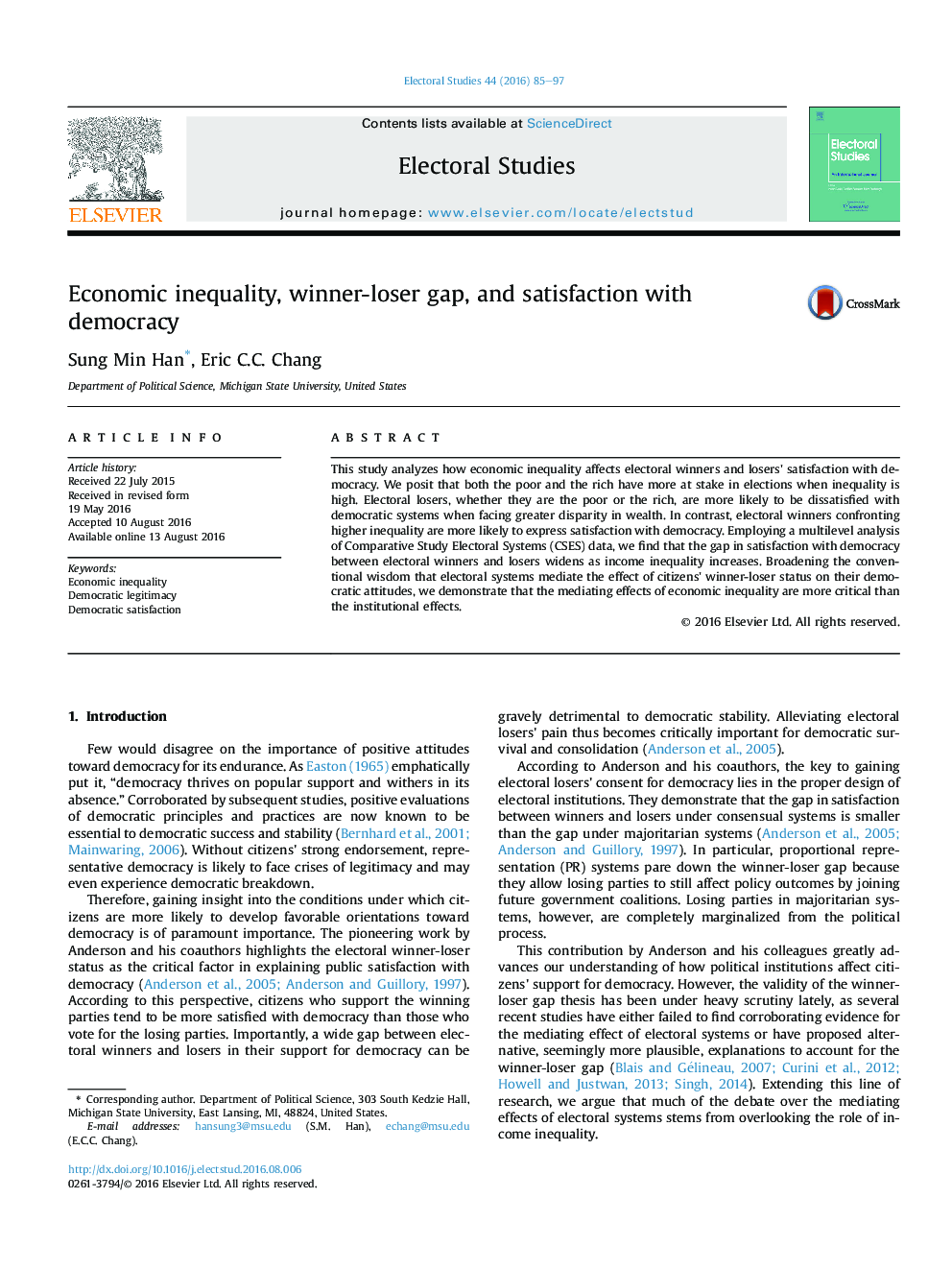| Article ID | Journal | Published Year | Pages | File Type |
|---|---|---|---|---|
| 1051652 | Electoral Studies | 2016 | 13 Pages |
•We expand the literature on voters' winner-loser status and democratic attitudes.•We posit that inequality drives the winner-loser gap in satisfaction with democracy.•We highlight how rising income inequality raises the stakes for the electoral game.•Inequality induces the rich and poor to be more concerned with electoral outcomes.•The mediating effects of inequality outweigh the institutional effects.
This study analyzes how economic inequality affects electoral winners and losers' satisfaction with democracy. We posit that both the poor and the rich have more at stake in elections when inequality is high. Electoral losers, whether they are the poor or the rich, are more likely to be dissatisfied with democratic systems when facing greater disparity in wealth. In contrast, electoral winners confronting higher inequality are more likely to express satisfaction with democracy. Employing a multilevel analysis of Comparative Study Electoral Systems (CSES) data, we find that the gap in satisfaction with democracy between electoral winners and losers widens as income inequality increases. Broadening the conventional wisdom that electoral systems mediate the effect of citizens' winner-loser status on their democratic attitudes, we demonstrate that the mediating effects of economic inequality are more critical than the institutional effects.
